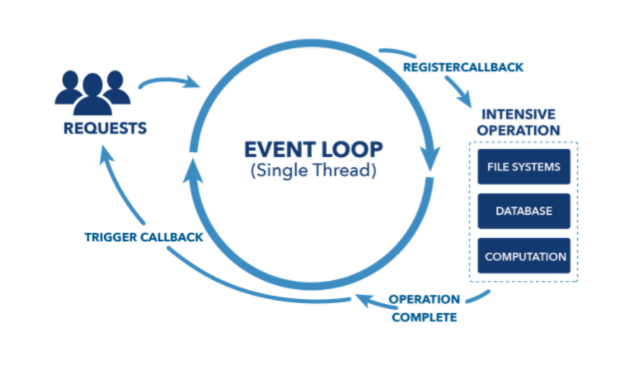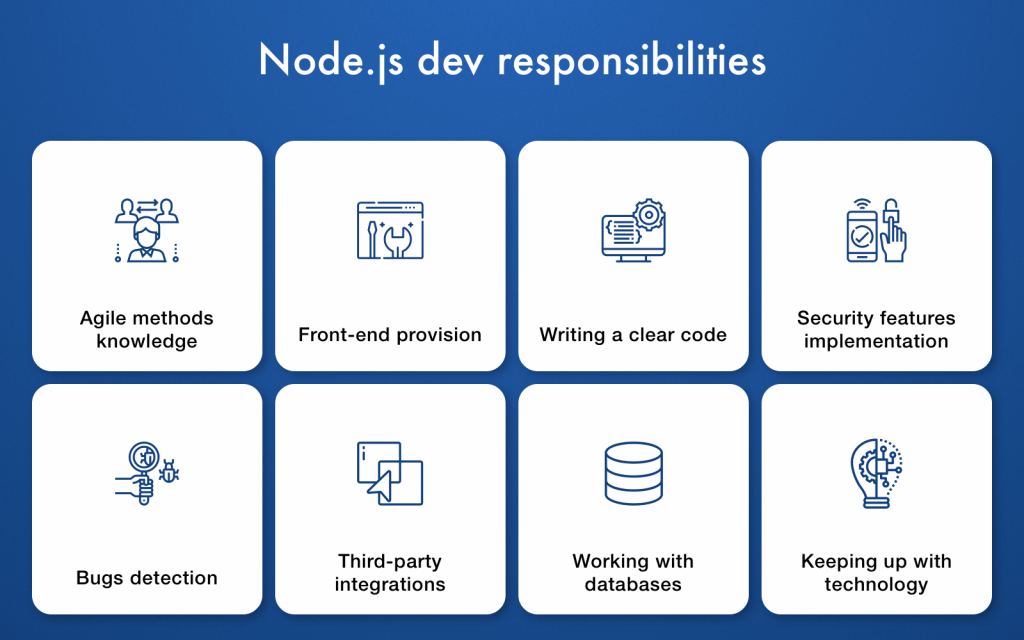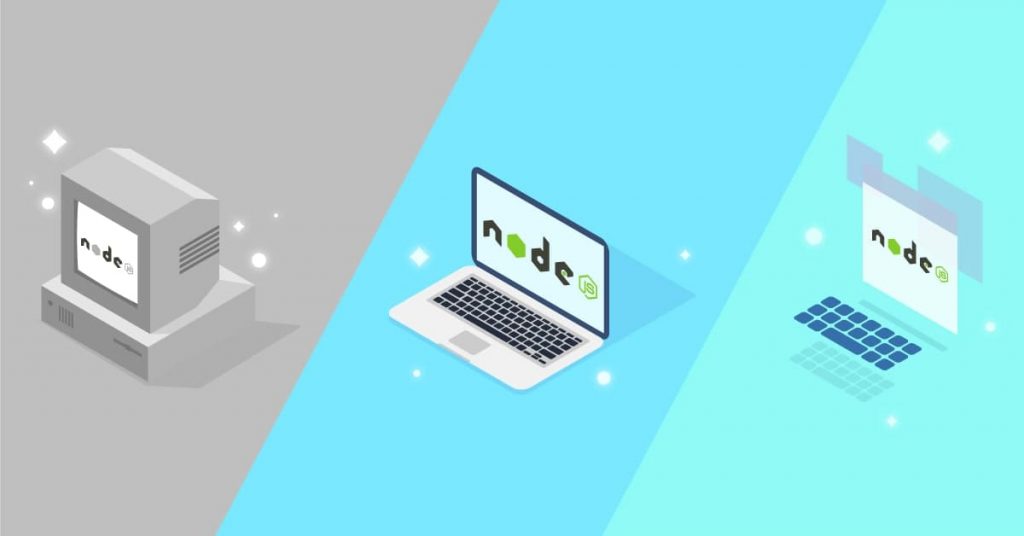Introduction
Node.js could be a platform designed on Chrome’s JavaScript runtime for simply building quick and scalable network applications. Node.js uses an event-driven, non-blocking I/O model that creates it light-weight and efficient, excellent for data-intensive time period applications that run across distributed devices.
Node.js is an open-source, cross-platform runtime setting for developing server-side and networking applications. Node.js applications are written in JavaScript and maybe run among the Node.js runtime on OS X, Microsoft Windows, and Linux.

What is Node.js?
Node. js could be a platform designed on Chrome’s JavaScript runtime for simply building quick and scalable network applications. Node. js uses an event-driven, non-blocking I/O model that creates it light-weight and efficient, excellent for data-intensive time period applications that run across distributed devices.
How does Node.js work?

First of all just like other languages node comes with packages and modules. These are libraries of functions that we can import from npm (node package manager) into our code and utilize. Node. js is that the JavaScript runtime surroundings that’s supported Google’s V8 Engine for example with the assistance of Node. js we are able to run the JavaScript outside of the browser js is that it’s single-threaded, supported event-driven design, and non-blocking supported the I/O model.
Why is node js so popular?
Node. js will handle several concurrent requests. this is often the most reason it quickly became popular among developers and huge corporations. It will handle several simultaneous requests while not straining the server.
Role of a Node.js developer:

A Node. js developer is answerable for writing server-side internet application logic in JavaScript and/or variants of it, like CoffeeScript, IcedCoffeeScript, etc, js developer is answerable for writing server-side internet application logic in JavaScript and/or variants of it, like CoffeeScript, IcedCoffeeScript, etc.
Node.js Developer duties:
- Work as part of a team developing applications and services using Agile development methods.
- Contribute to team and organizational improvements in process and infrastructure.
- Build customer-facing UI and back-end services for payment processing administration and management.
- Code, test, and operate a node. js-based services.
- Effectively use tools and ingenuity to identify and fix defects before they become a problem.
Responsibilities of Node.js Developers:

Following are some of the important features that make Node.js the first choice of software architects.
Asynchronous and Event-Driven − All Apis of the Node.js library are asynchronous, that is, non-blocking. It primarily means that a Node. the js-based server never waits for an API to come back with the information. The server moves to the next API when calling it and a notification mechanism of Events of Node.js helps the server to induce a response from the previous API decision.
Very Fast − Being built on Google Chrome’s V8 JavaScript Engine, the Node.js library is very fast in code execution.
Single-Threaded but Highly Scalable − Node.js uses a single-threaded model with event looping. The event mechanism helps the server to reply in a non-blocking way and makes the server extremely scalable as against ancient servers that produce restricted threads to handle requests. Node.js uses a single-threaded program and therefore the same program will offer service to a far larger range of requests than ancient servers like Apache HTTP Server.
No Buffering − Node.js applications never buffer any data. These applications simply output the data in chunks.
License − Node.js is released under the MIT license.
The Benefits of Node.js:
- Better efficiency and overall developer productivity
- Code sharing and reuse
- Speed and performance
- Easy knowledge sharing within a team
- A huge number of free tools
What is the scope of node JS?

Node.js could be a runtime environment that permits you to write down server-side applications in JavaScript. PHP could be a server-side language. attributable to that, you’ll get to try PHP with a frontend language, sometimes a mix of HTML, CSS, and JavaScript, to make full-stack internet apps.
Node.js Developer Course:
Js Developer Course covers the basics of Node before diving deep into nice tools like specific, Mongoose, and MongoDB. the whole course is predicated around one goal: Turning you into an expert Node developer capable of developing, testing, and deploying real-world production applications.
Node.js Developer requirements and qualifications:
- Previous working experience as a Node.js Developer for (x) years.
- BA in computer science or similar relevant field.
- In-depth knowledge of Node.js.
- Hands-on experience with HTML, CSS, and AJAX.
- Development experience designing object-oriented JavaScript and SVG.
- Applicable knowledge of web libraries and frameworks such as AngularJS, Polymer, and Closure.
- Familiarity with the whole web stack, including protocols and web server optimization techniques.
- Strong analytical skills and problem-solving aptitude.
- Attention to detail.
Conclusion
Node.js is, while not a doubt, one of all the additional interesting technologies in use nowadays, and it’s full-grown into one of all the foremost popular platforms used for internet applications, services, and desktop apps. It’s my hope that when looking at this course, you currently have a solid foundation to begin writing your own Node applications.
If you wanna learn, and from all of us here at DevOpsSchool, thank you for watching!
- SDLC (Software Development Life Cycle) Phases, Process, Models – Complete guide - October 22, 2021
- Getting Started With SpringBoot Application - September 29, 2021
- Everything you know about Full Stack Quality Assurance Engineer - September 23, 2021
